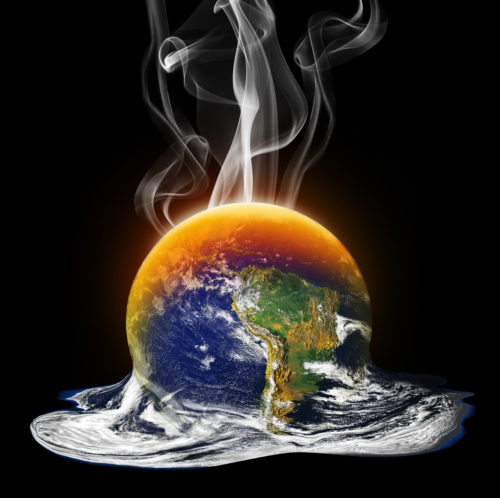Outrage of the Month: Global Warming – A Public Health Crisis Already Underway
Health Letter, February 2019
By Michael Carome, M.D.

If you’re not outraged,
you’re not paying attention!
Read what Public Citizen has to say about the biggest blunders and outrageous offenses in the world of public health, published monthly in Health Letter.

Recent wildfires in California, devastating hurricanes along the Gulf Coast and widespread flooding in the Carolinas provide some of the most dramatic signs of accelerating global warming and the accompanying climate change. But garnering much less attention is the unfolding worldwide public health emergency that has been triggered by global warming.
Notably, the World Health Organization (WHO) identified the combination of air pollution and climate change as one of the ten leading threats to global health in 2019. The WHO conservatively estimated that from 2030 to 2050, climate change is expected to cause 250,000 additional deaths per year globally from malnutrition, malaria, diarrhea and heat stress.
A review published by public health experts at the London School of Hygiene and Tropical Medicine and the University of Washington in the Jan. 17 issue of the New England Journal of Medicine (NEJM) detailed the many adverse effects on public health already being wrought by global warming, including the following:
- More frequent extreme weather events, such as severe hurricanes and floods, are causing traumatic injuries, fatalities and adverse mental health effects, including depression and anxiety.
- Exposure to increased environmental temperatures, particularly in the work setting, is increasing the risk of heat-related injuries, including heat stress and life-threatening heat stroke.
- Markedly worsened air quality due to wildfires is triggering exacerbations of asthma and chronic obstructive pulmonary disease, promoting respiratory allergies and contributing to cardiovascular disease, such as heart attacks.
- Deterioration in the quality of water supplies and flooding is leading to the spread of numerous infectious diarrheal diseases, including cholera and cryptosporidiosis (an intestinal infection caused by the parasite cryptosporidium).
- Expansion of the geographic range of disease-carrying insects, particularly mosquitoes and ticks, is escalating the transmission of numerous infections, including chikungunya, dengue, various forms of encephalitis, hantavirus, Lyme disease, malaria, Rift Valley fever, West Nile virus and Zika virus.
- Disruptions of the food supply by extreme droughts and floods are fostering malnutrition and undernutrition. In addition, there is increasing evidence that rising carbon dioxide levels in the atmosphere have adverse effects on the nutrition quality of major cereal crops, such as rice and wheat. Climate change also is reducing overall yields of vegetables and legumes, which are major global food sources.
Emphasizing that global warming already is adversely affecting human health, the authors of the NEJM review concluded the following:
Climate change is causing injuries, illnesses, and deaths, with the risks projected to increase substantially with additional climate change, threatening the health of many millions of people if there are not rapid increases in investments in adaptation and mitigation.
In an accompanying commentary published in the same NEJM issue, two physicians at the Massachusetts General Hospital called on their more than 1 million physician colleagues in the U.S. to undertake concerted, organized and forceful efforts to address global warming, such as protesting policies that contribute to climate change, working with students on climate action and lobbying legislators. They stated the following:
As physicians, we have a special responsibility to safeguard health and alleviate suffering. Working to rapidly curtail greenhouse gas emissions is now essential to our healing mission.
But time is of the essence. Unless the governments of the U.S. and other countries immediately implement strong measures to decrease the rise in carbon dioxide emissions, the damage to public health will be catastrophic.